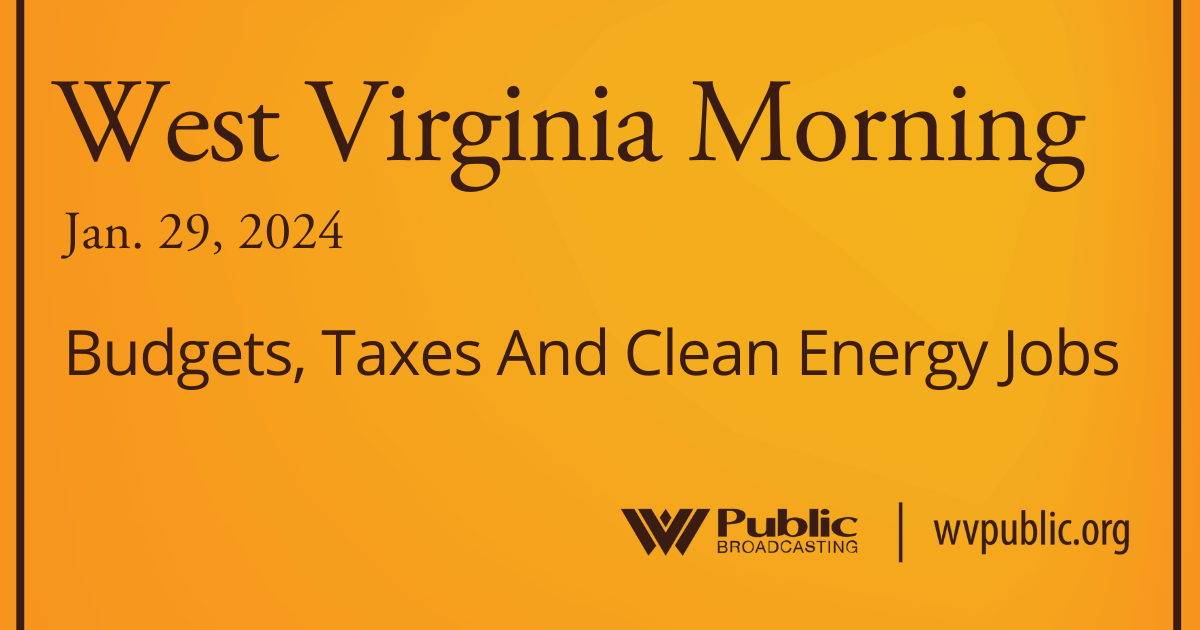On this West Virginia Morning, state lawmakers are mulling over countless tax proposals that would directly affect West Virginians and their wallets. On Friday’s episode of The Legislature Today, Randy Yohe spoke with House Speaker Roger Hanshaw, R-Clay, and Kelly Allen, the executive director at the West Virginia Center on Budget & Policy, to discuss budgets and taxes.
Also, in this show, we have the latest story from The Allegheny Front – a public radio program that reports on environmental issues in the region. We listen to their story about replacing coal and natural gas jobs with clean energy jobs.
West Virginia Morning is a production of West Virginia Public Broadcasting which is solely responsible for its content.
Support for our news bureaus comes from Shepherd University.
Eric Douglas is our producer.
Listen to West Virginia Morning weekdays at 7:43 a.m. on WVPB Radio or subscribe to the podcast and never miss an episode. #WVMorning
